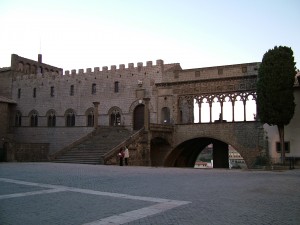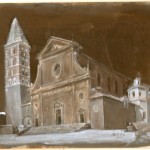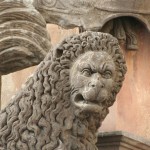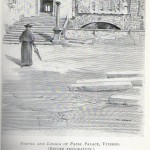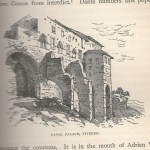First Papal Conclave in Viterbo
February 11th , 2013 Tagged with: conclave • fountains of Viterbo • Grand Tour • Nathaniel Hawthorne • northern Lazio • papal election • Pope Gregory X • study in Viterbo • Viterbo's papal palace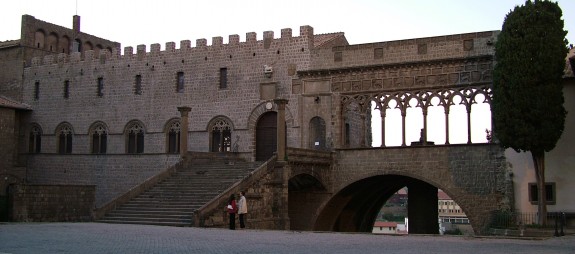
The city of Viterbo is the provincial capital of Northern Lazio also known as Tuscia or Etruria. Many study abroad programs are now held in Viterbo, since it is smaller, safer and more picturesque. See article on Study Abroad on this website.
Viterbo lived its period of major splendor and power in the 13th century when it was chosen as the seat of the papacy instead of Rome, where powerful warring families made life too dangerous.
Eight different popes lived in Viterbo making it is similar to Vatican City and Avignon in France. Medieval history comes alive when one stands near the outdoor pulpit of Santa Maria Nuova church (built in the year 1000) where St. Thomas Aquinas preached to the crowds or inside the papal palace where a new roof was added after the original one was removed in the 1200s during the first conclave for the election of a new pope.
The cardinals were locked up cum clave (hence the word conclave) inside the palace’s large Conclave Hall. In desperation the town’s population, who were feeding them and their entourages, eventually reduced the cardinals’ food and wine supplies , trying to speed up the election. Time wore on and they finally decided to remove the roof of the palace: in order to help the Holy Spirit come down and illuminate them, it was quipped. Since winter in Viterbo can be very cold, the election finally took place. After stalling for 33 months, Gregory X was elected as the new pope in 1271.
(click on images to enlarge)
The palace can be visited today thanks to the Archeoares group who manage the site and the nearby Museo del Duomo. The three young archeologists Bruno, Francesco and Giampaolo also manage Edizioni Archeoares publishing company.
Contact them directly to order the e-book format of my books.
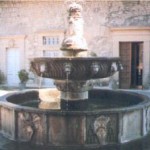
Sophie and Nathaniel Hawthorne described the fons papalis fountain and their holidays in Viterbo in the 1840s
One of Viterbo’s many fountains the “fons papalis” fountain adorns the Papal loggia. It dates from the second half of the 15th century and was created using parts of an earlier one destroyed when the roof and rear façade of the loggia collapsed.
It is decorated with the coat-of-arms of the Gatti, Riario, Visconti Settala and Della Rovere families and it probably was connected to a well communicating with an underground cistern that provided water for the papal palace.
For more information, stories, curiosities about the Viterbo area, purchase the only book of travel writing in English “Etruria Travel, History and Itineraries in Central Italy” direct from the author, use the contact form on home page.
Special discounts for students and cultural travel groups. 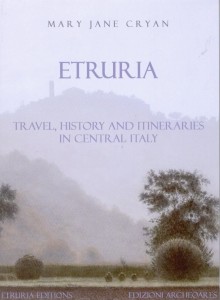
Italian language book 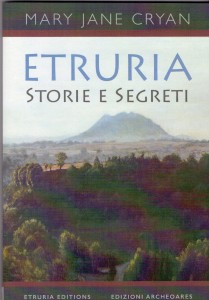 with more stories and secrets.
with more stories and secrets.
Click the link below to see postage costs.
manovra2015-variazioni-tariffe-spedizioni-internazionali
